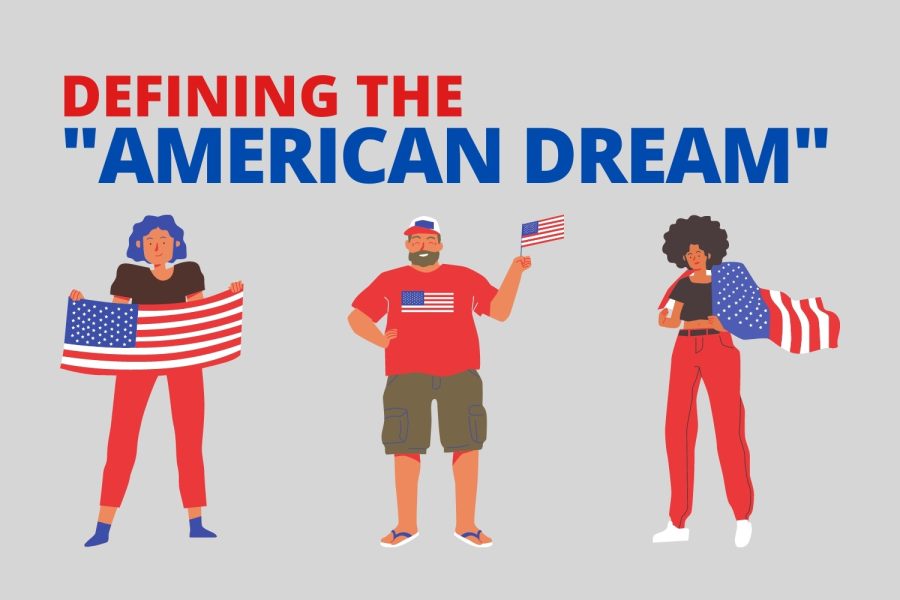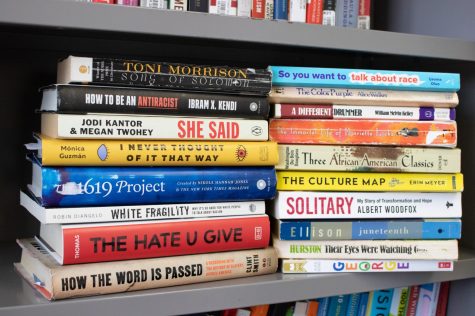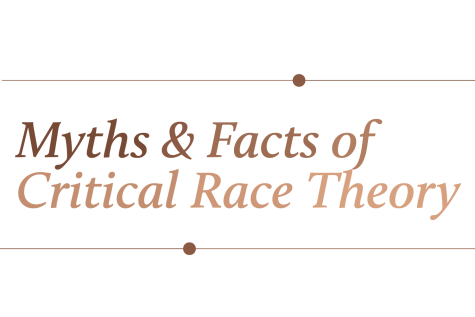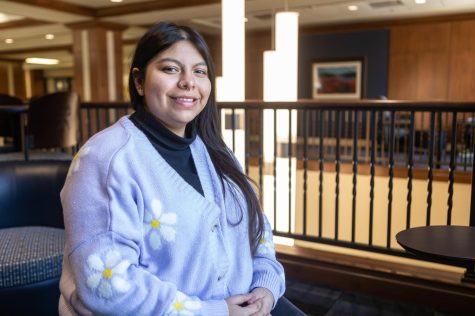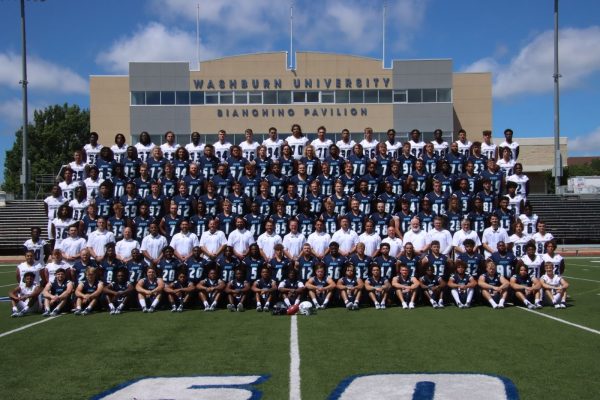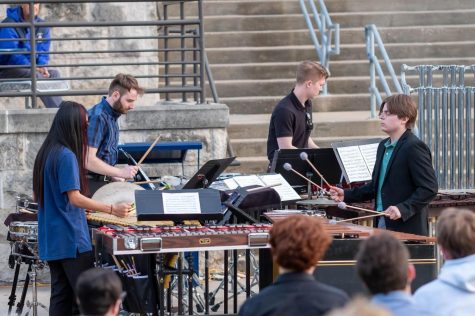Defining the “American Dream”
Indigo Magazine
The “American Dream” means something different for each person. For some, it could be financial stability and for others, it could be building a family or career that can give them a satisfying life.
Georgia Tenny, senior lecturer of modern languages at Washburn, has a unique perspective on the United States and the “American Dream” because she immigrated from the Dominican Republic. Her grandmother would come to visit from the U.S. and tell Tenny and her family about the opportunities that awaited them there.
“She used to come visit those of us that were still in the Dominican Republic and say things like, ‘You can find money on the street in the U.S.’ Everything I heard about the U.S. was simply perfect,” Tenny said in an email interview.
It took her and the rest of her family six years to get visas to come to the U.S., but it wasn’t the picture-perfect place her grandmother told her about.
Tenny dreamed of achieving higher education and having a family that she could support with her career. She wanted to provide the life for her future family that her parents were unable to give to her.
“I realized quickly that you could be just as poor here as we were in the Dominican Republic, and that there was no money on the streets to be picked up as you wished,” Tenny said.“ However, I also quickly noticed that unlike my beloved Dominican Republic, hard work was rewarded in America. I could still have everything I dreamed of. I’d just have to work hard to get it.”
American culture values individuality and the freedom to choose any path. While some have found success, others talk about how their struggles are far from what they envisioned for their future.
Tatiana Jenkins, a former Washburn student, was adopted from the Ukraine by an American family when she was 16. She said that her expectations of the United States came from movies. While she has always been independent and hardworking, she says her dream of having a house and family hasn’t been easy to acquire.
“I had kids before I got married,” Jenkins said. “For me, it wasn’t supposed to be like that. In the Ukraine, traditionally everybody gets a career and then gets married. After that you have kids,” Jenkins said.
Jenkins said her new goal is to pursue a career that provides more for her family, but the cost of child care in America makes it difficult.
Ikisha Reed, a non-traditional student majoring in nursing at Washburn, agrees that our country needs to consider the lives of working parents and create an environment that encourages a healthy balance.
“As far as mothers who work, I do not feel that we are supported. We are not able to get government assistance as far as cash assistance. You pretty much have to not be working to receive any of the government benefits,” Reed said.
Reed is a full-time hospice aide and has a second job at a local agency where she travels to people’s homes to provide care. On top of being underpaid, Reed must often confront racism as a Black woman.
“I have to travel to a lot of small towns. There have been a lot of times where I’ve been followed out of towns due to the fact that I am Black,” Reed said.
There are many factors that can account for the change in form of the American family. For today’s generation, statistics show that the birth rate has dropped 9.41% from 2020 to 2021. The birth rate decline has been a trend since 2008, with more people choosing to focus on their careers and spouses than becoming parents. This could be correlated to American policies or the general pressure to work overtime.
Kerry Wynn, director of the honors program and professor of history at Washburn, says there are a few reasons for the shift from the stereotypical “American Dream.”
“The U.S. economy is based in the antebellum period of slavery and the theft of labor of Africans and their descendants,” Wynn said. “Any time they talk about economic security for free citizens, it is dependent on the exploitation of those who are not citizens or who aren’t free.”
Wynn goes on to explain that from an economic standpoint, many middle- and lower-class citizens— especially people of color— don’t have an opportunity to seek out certain options like having a family or buying a house because it is not a sustainable dream.
She explains that while doors will be open for some, there will always be those who have more hurdles to conquer because throughout history, people in power seek to stay in power by keeping others beneath them.
“Because of the way institutions are structured in the United States and because of systematic racism, it becomes much more difficult for people of color. They have a lot more barriers,” Wynn said.
Despite upbringing or social class, all children see what their parents did and either replicate it or do whatever possible to be different.
“Many generations do not want to live like their parents,” Wynn said.
Ultimately, the “American Dream” is different for every person, but they all share a common factor— to be successful and happy.
Your donation will support the student journalists of Washburn University. Your contribution will allow us to purchase equipment and cover our annual website hosting costs.




